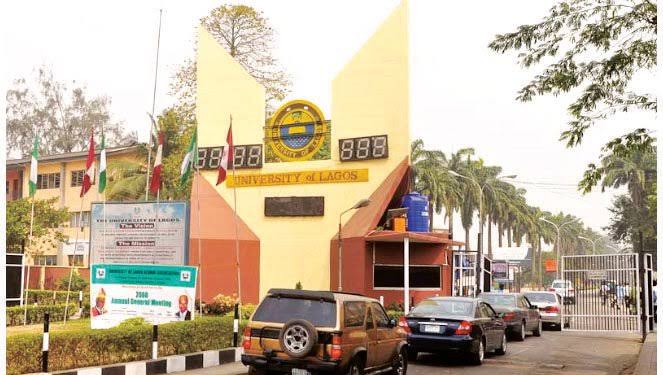By Oluwakanyinsola Alao, Oluwatobiloba Ade-Ajayi, Oyinkansola Joda, Hannah Lawal, Mojisola Otitolaiye, Dorcas Afolabi, Imisioluwa Giwa, Olaide Wickliffe and Philip Bur

Environmental Sanitation is the promotion of hygiene and the prevention of disease and other consequences of ill-health, relating to environmental factors.
The overall purposes of sanitation are to provide a healthy living environment for everyone, to protect natural resources and to provide safety, security and dignity for people.
In Nigeria, cities are often flooded and people are made homeless, displaced, and even die as a result of blocked drainages and waterways filled with waste. Properties and businesses worth millions of naira are often lost in floods arising from blocked drainages. People who have lost businesses and even relatives in situations like this can hardly feel safe. Life becomes unbearable and hard for them.
An environment littered with waste and garbage, stagnant and stale water, often provides a breeding ground for mosquitoes, germs, bacteria and deadly viruses that cause harm to humans and elicit diseases. Sick people live in a state of insecurity as their health and lives are endangered. Valuable financial resources that could be invested into meaningful life projects are spent treating sicknesses and diseases arising from an unclean and unhealthy environment. Life is made less secure as financial resources that should have been used to live are spent on disease. Poor sanitation results in a lot of sicknesses.
The group members of Shomolu 1 went to a canal located along Abiodun Street, Shomolu, Lagos in the early hours of a weekday. The canal was surrounded by residential buildings, to accommodate housing apartments and petty traders, and also has a road across the canal for vehicles, and pedestrians. At the time the canal was visited, it was polluted with refuse and was not a good look for passers-by.

In the Environmental sanitation law (No 1, 2001) for Lagos state government, the House of Assemble enacts that every owner, tenant and occupant of any building shall keep clean the sidewalks, gutter area along the building frontage, sides and back at all times. It also states that every owner, tenant and occupant of any building shall keep refuse, dustbin within their premises until the time of collection. They also should not litter, sweep out, or throw ashes, refuse, paper, nylon, and rubbish into the street, public place or vacant plot. Lastly, as a point to note, it also states that no pedestrian shall dispose of any scrap paper, newspaper, candy wrapper, fruit skin, and similar refuse anywhere except in litter bins.
However, with all these regulations made by the Lagos state government regarding environmental sanitation, this made us question the state in which we found the Canal on Abiodun Street, Shomolu. We interviewed a couple of residents and pedestrians on the street of Abiodun to make further enquiries into the situation.
Firstly we probed into the reason why the canal was in that situation and how refuse kept getting disposed of at the canal. A couple of residents claimed that they were in compliance with the Lagos state regulation and they do not dispose of their refuse in the canal but they stated that the sloppy geographical nature of the location made it easy for rain to gather these refuse from the street in a flow and dispose of them in the canal. A respondent also made a note of the fact that there was no one responsible for guard watching the canal hence, perpetrators can dispose of refuse into the canal at odd hours of the day without being caught.
From our visit to the canal, the respondent also claimed that the improper canal situation has impacted their health and livelihoods. They all noted that one of the major health challenges they are facing is Malaria and this is caused by the improper waste management around the canal. It was noted that during rainy seasons, the canal was usually filled up with waste along with dirt water and which allowed for breeding mosquitoes which are the primary cause of the malaria virus.
Also, the residents of Abiodun Street, Shomolu, also complained of rat situations. This is expedient as rodents especially rats thrive in areas where there is no proper waste management and the canal situation is just an example to enable rodents to thrive. During the rainy season, these rodents when the canal is filled up with dirt and water, the rats seek another place of residence which is usually in houses surrounding the canal. In the case where this situation cannot be effectively managed, this would cause diseases like Lassa fever and all other viruses to rampantly spread. However, the resident did not complain about Lassa fever or any other health issues apart from the destruction of property.
Also from the respondent, we determined that the role of mass media in creating awareness about the dangers posed by the habit of dumping waste in the canal was subliminal. They responded that the communication at the local government level was more effective to bring the attention of the government to the canal situation when it needs evacuation. They did not report being influenced by the mass media for their waste management habits, rather they seem to have effective communication with the local government bodies and in return, they are influenced by their community leaders and chairman, counsellors on the proper habit of dumping refuse.

a) Indiscriminate Waste Dumping: Despite the existence of the law, indiscriminate waste dumping remains a significant problem in Lagos State. Waste is often disposed of in unauthorized locations such as streets, canals, and open spaces, leading to environmental pollution and health hazards.
b) Lack of Waste Management Infrastructure: Insufficient waste management infrastructure exacerbates the sanitation issues in the state. Inadequate waste collection and disposal systems result in the accumulation of garbage, clogged drainage systems, and the proliferation of disease-causing agents.
c) Inadequate Awareness and Enforcement: There is a need for enhanced public awareness campaigns to educate residents on the importance of proper waste disposal and its impact on public health. Additionally, strict enforcement of the existing laws and regulations is essential to deter individuals from engaging in indiscriminate waste dumping.
CHALLENGES
a) Population Growth: Lagos State is one of the fastest-growing urban areas in the world. The rapid population increase has strained existing waste management systems, making it challenging to keep up with the rising demand for sanitation services.
b) Informal Settlements: The presence of informal settlements with limited access to basic sanitation facilities contributes to the overall sanitation challenges in the state. Efforts should be made to provide adequate waste management services to these areas.
c) Inadequate Waste Segregation and Recycling: The absence of a comprehensive waste segregation and recycling program results in the inefficient management of waste. Establishing a robust recycling infrastructure will not only reduce the amount of waste sent to landfills but also create employment opportunities and promote a cleaner environment.
RECOMMENDATIONS
a) Strengthen Waste Management Infrastructure: The government should invest in waste collection trucks, modern landfill sites, and waste processing plants. Increasing the number of waste collection points and ensuring regular waste removal will help combat the issue of indiscriminate waste dumping.
b) Public Awareness Campaigns: Launching extensive public awareness campaigns through various mediums such as radio, television, social media, and community engagement will educate residents about the importance of proper waste management practices. These campaigns should emphasize the link between indiscriminate waste dumping and the spread of diseases.
c) Enhance Enforcement Mechanisms: The government should enforce existing laws and regulations more strictly. This can be achieved by increasing the number of environmental sanitation officers, imposing stricter penalties for violations, and creating a reporting system for residents to report instances of indiscriminate waste dumping.
d) Promote Waste Segregation and Recycling: Implementing a comprehensive waste segregation and recycling program will help manage waste more effectively. The government should encourage residents to separate their waste into recyclable and non-recyclable categories and establish recycling centers throughout the state.
e) Collaboration with the Private Sector and NGOs: Foster partnerships with private sector entities and non-governmental organizations (NGOs) to improve waste management practices. Such collaborations can bring in expertise, resources, and innovative solutions to address sanitation challenges effectively.
The current state of environmental sanitation in Lagos State demands urgent attention. By implementing the recommended strategies, the government can address the challenges of indiscriminate waste dumping, improve waste management infrastructure, raise public awareness, and enhance enforcement mechanisms. These efforts will contribute to a cleaner and healthier environment for all residents, reducing the prevalence of diseases.






More Stories
The Effect Of Fuel Subsidy Removal On UNILAG Lecturers
MCSAites, Others Emerge Winners at Dentsu Agyle Business Pitch
NIMechE Unilag Trains Over 150 Students in Maiden Bootcamp